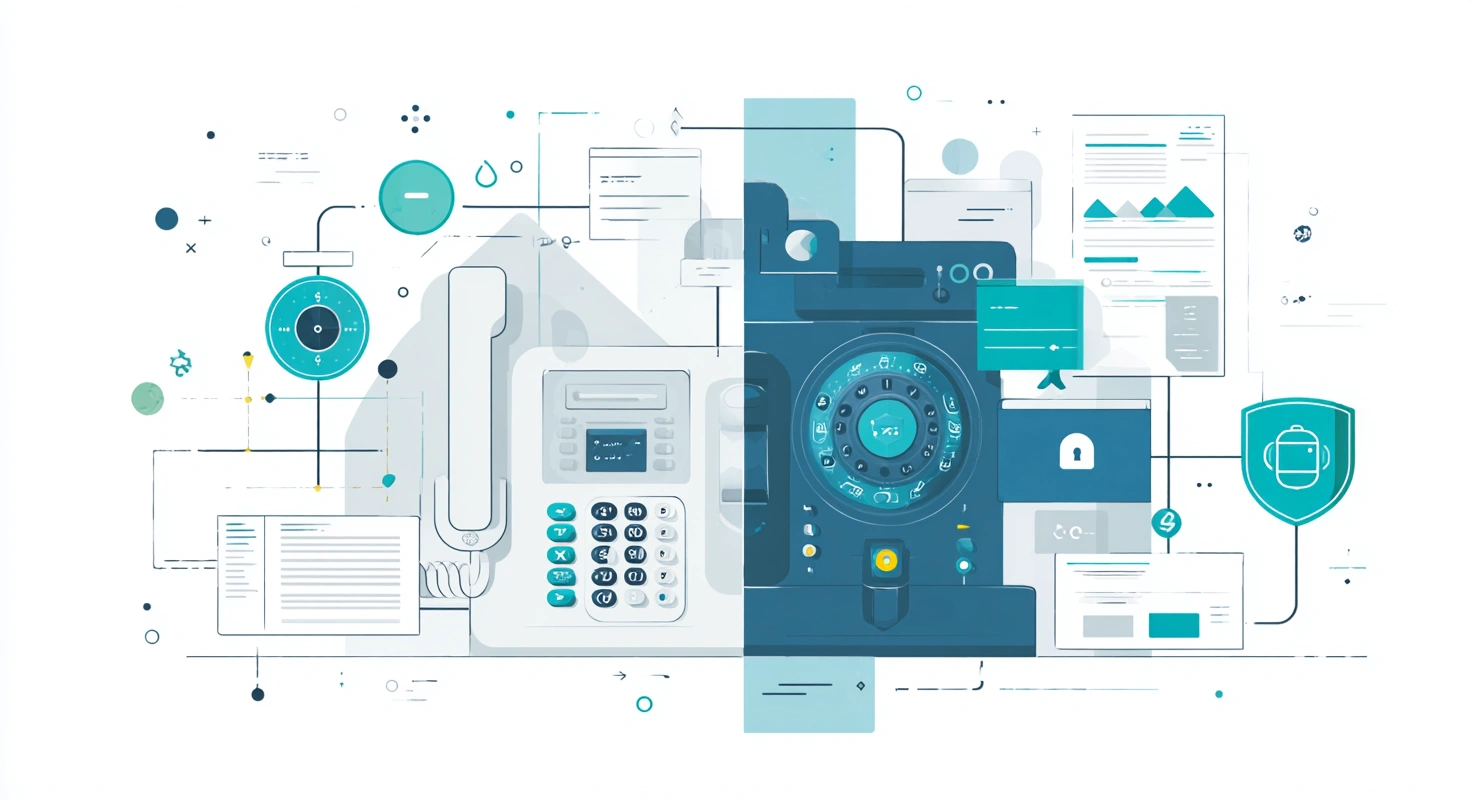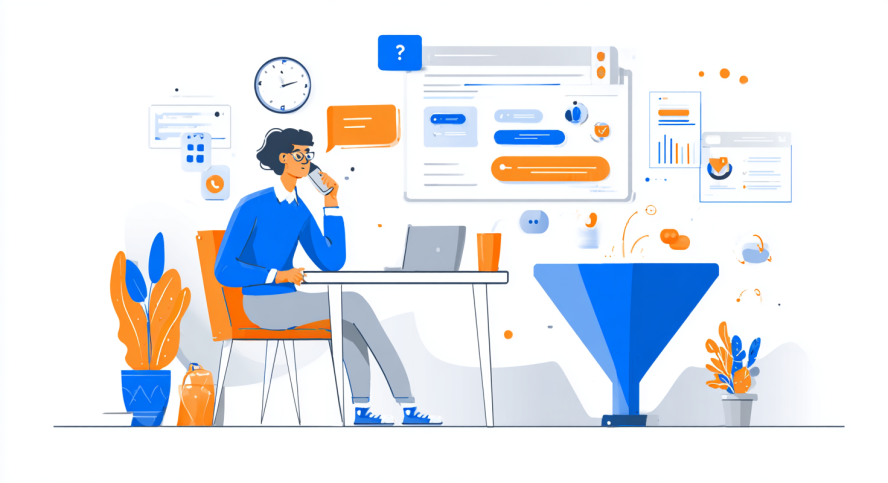“70% of leads are lost from poor follow-up” - Gartner
Sales reps face a core challenge when evaluating leads after their first call.
And lead evaluation is critical. It helps an agent understand which leads are worth pursuing and which can wait.
At a time when automation and call center technology are on the rise, everyone is seeking solutions that solve and automate critical tasks like lead evaluation.
And Convin made it happen. Introducing the new addition to our contact center software solution- Lead Scoring.
But first, let’s briefly discuss what is lead scoring and why call centers in 2023 should invest in lead scoring.
Want to see a Lead Scoring demo instead?
What is Lead Scoring?
Lead scoring is a technique to understand the possibility of a lead converting into a customer. It evaluates the chances of a lead completing a purchase with an organization.
The lead scoring models consider aspects like the prospect's interest, whether they enquired about pricing, and the questions they asked.
Basis the parameters, a score is assigned to a lead. This score is a representation of the chances of the lead converting.
Here’s a good lead scoring example to understand better.
Imagine a scenario where two leads–A and B call a gym.
A enquires about the different membership plans. He also shows interest in verifying the involvement of a personal trainer and dietician in the membership and the various gym equipments available. He finishes the call with details of any ongoing discount offers and books a free session.
Similarly, B calls the gym. B enquires about the different plans and ends the call after learning about the ongoing offers.
Between the two leads, who is more likely to buy a membership?
Lead A.
Why would you say so?
If you think about it, A seemed more enthusiastic and had a clearer intent to buy a membership than B.
Lead scoring uses a similar approach to evaluate prospects and help sales reps figure out which leads are worth pursuing.
Observe the magic of Lead Scoring today!
Now that we’ve seen what lead scoring is, let’s look at how it can help sales reps.
How Does Lead Scoring Help Sales Reps?
The process of cold-calling leads is time-consuming and difficult. Sales agents must be highly patient and persistent to convert when cold calling.
Let’s look at how lead scoring can help agents in this lengthy and troublesome process.
1. Accurately Evaluate Leads
“80% of sales require 5 follow-up calls after the first meeting and only 8% of reps make the fifth follow-up call. 44% of sales reps give up after the first follow-up call.” - Invesp
A few(rare) sales conversions happen on the first call. It takes time and nurturing to get a lead to convert.
This becomes even more difficult in industries like real estate, manufacturing, and the B2B SaaS(software as a service) space, where sales cycles are longer.
Sales reps can evaluate a lead accurately after one call. However, it gets tricky when previous conversations need to be considered before concluding to get on the 4th follow-up.
In such cases, it’s easier when lead scores are assigned automatically, considering every conversation.
.avif)
2. Focus on the Profitable Leads
“Over 30% of leads never receive a follow-up after the initial contact.” - Call Hippo
A study by Revenue.io found that sales reps in B2B organizations make an average of 35 calls per day, which would count to around 175 calls in 5-day work week. With the given data, it means around 53 leads don’t receive a follow-up.
Not all of them would indeed be leads with high conversion possibility, but let’s consider that 10% have a decent conversion possibility. This means that 5 good leads don’t receive follow-ups on a weekly basis per agent.
When reps know which leads have a higher conversion probability, it’s easier for reps to follow-up with the right leads.
Lead scoring tools try to eliminate that by helping reps to chase the right prospects. Because focusing on leads with lower conversion probability can result in good leads slipping away.
3. Achieve Higher Conversation Rates
From the above discussion, it is clear that lead scoring helps reps chase prospects with higher conversion probabilities. When all reps run behind the profitable leads, it increases their sales cycle efficiency and, consequently, higher conversion rates.
Take the first step to increase your conversion rates!
We’ve seen what lead scoring is and how it helps sales reps. But how does the lead scoring process work?
This blog is just the start.
Unlock the power of Convin’s AI with a live demo.

What is the Lead Scoring Process?
.avif)
There are a few call center solutions that offer lead-scoring features. Let’s look at how they work.
1. Cold-Call Leads
- Reps cold call their leads or receive inbound sales calls.
- These conversations get recorded and transcribed for conversation analysis.
2. Conversation Analysis
Call center software analyzes these conversations to evaluate the lead. But how are leads evaluated?
- Parameter Setting
Managers define and configure parameters to evaluate a lead on a product/service level. A program is then created to incorporate these parameters and influence the lead score. Every lead is then evaluated based on these programmed rules.
Note: The parameters involved in lead scoring are similar for manual and automated processes.
- Rule-Based Evaluation
The call center software evaluates each lead’s conversation by accessing call recordings. Speech analytics evaluates leads according to rules that incorporate all parameters.
- Scoring the Prospect
Once the call center software evaluates the lead, a score is assigned. The lead scores can be segregated into three categories:
- ~Hot lead: Leads that display high enthusiasm for the products/services offered. They ask relevant follow-up questions that indicate a purchasing intent. These leads have excellent synergy between their needs and the offerings.
- ~Warm lead: Lead interested in the products/services offered but doesn’t show immediate purchasing intent. The alignment between their needs and offerings is yet to be determined.
- ~Cold lead: Leads that don’t demonstrate any purchasing intent. There is a possible mismatch between their needs and the offerings.

The lead score shows more insights apart from the score and the categorization. They are:
- Explanation of lead categorization: The rep can see why the lead is categorized as hot, warm, or cold.
- Next steps for agents: A list of next steps reps and agents need to follow during the next follow-up.
The lead score is assigned based on the number of conversations with a particular account. Analysis can be classified into two methods:
- Conversation-level analysis: When a single conversation is conducted with the lead, the scoring is performed based on a single conversation.
- Account-level analysis: When there are multiple conversations with a lead, the score is displayed by considering previous and latest conversations.
Follow a systematic lead scoring process!
We’ve looked at how lead scoring happens. Let’s understand why call centers should invest in lead scoring software.
Why is Lead Scoring Important, And Why Should Call Centers Invest?
It isn't an accurate result when sales agents try to categorize a lead independently.
Apart from inconsistencies in categorizing leads, there are other reasons why call centers should invest in lead-scoring software.
1. Detailed Account-Based Scoring
“60% of customers say no four times before saying yes.” - Invesp
Sales reps might be able to evaluate leads based on a single call. Whereas evaluating leads based on past and present conversations can be difficult.
Reps need to remember aspects of conversations that happened days or weeks prior, which may not be accurate. This can get worse in industries with a longer sales cycle.
Lead scoring software can help reps maintain accurate lead scores on an account level. Account-level scoring gives a holistic view of the leads. Reps can understand whether an account shows an increasing or decreasing buying trend.
.avif)
2. Creating an Efficient Sales Cycle
As illustrated above, reps will easily identify prospects worth chasing. Reps can stop following up with leads that have a low conversion probability.
Lead scoring can increase the effectiveness of the cold-calling process. Over time, this will result in optimizing the sales cycle in your organization.
Find out the pricing of Convin’s Lead Scoring Tool here.
Identify Whether Your Call Center Needs Lead Scoring Tools
Lead scoring is a valuable addition to all sales teams.
But how do you understand if your sales team requires lead scoring software immediately?
1. Lengthy Sales Cycle
As discussed earlier, industries like real estate have a lengthy sales cycle. This is because there are different stakeholders and variables to consider before purchasing.
If your product or service has a lengthy sales cycle, the need for lead scoring is evident. Each account needs a lead score tracked over time to understand purchase intent.
2. Upselling & Cross-Selling
If your organization has opportunities for upselling or cross-selling, implementing lead scoring can make it easier for customer success teams. They evaluate interest and intent before deciding whether follow-ups should be made to these customers.
For industries with these challenges, the need for lead scoring software is more essential compared to other sales teams.
We know you’ve been waiting for this release for a long time, so here’s Lead Scoring. Get on a demo and accelerate your sales cycle(plus earn more revenue).
Frequently Asked Questions
1. What is a lead?
A lead is a potential customer who displays interest in your product or service. They may have visited your website, filled out a contact form, or called your contact center.
2. What are companies looking for when conducting lead scoring?
When conducting lead scoring, companies look for parameters that indicate the likelihood of a lead converting into a customer. Purchase intent and website activities are a few well-known factors.
3. What is lead scoring data?
Lead scoring data is the information and data points used in the lead scoring process to assess and prioritize leads based on their quality and likelihood of converting into customers.
4. What is lead scoring classification?
Lead scoring classification is the method to categorize leads under Hot, Warm, and Cold leads, depending on their lead score analysis.
5. What are the different models of lead scoring?
There are various models of lead scoring like purchase intent model, online behavior model, and engagement model.
The engagement and online behavior model considers online behavior and brand engagement as parameters for scoring. The purchase intent model tracks a prospect’s intent to purchase and is perfect for sales.

.avif)






.avif)